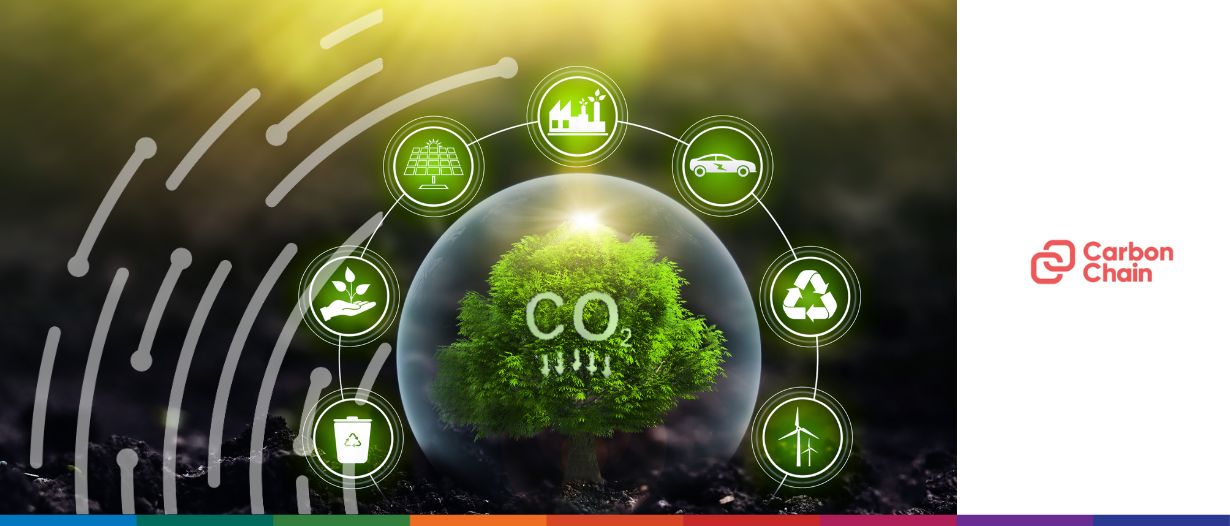Estimated reading time: 4 minutes
CarbonChain, a leader in digital solutions for environmental compliance, announced three updates to its platform, designed to assist manufacturers in metals and energy sectors with enhanced, cost-effective carbon reporting capabilities.
These three updates are part of CarbonChain’s continuous effort to empower companies to meet and exceed global carbon emissions disclosure requirements across Scope 1-3.
New features and enhancements:
- CBAM: Europe’s complimentary self-service tool: Effortlessly measure, track, and submit data for the European Union’s Carbon Border Adjustment Mechanism (EU CBAM) using our automated tools. Access is free for a limited period.
- Precision carbon footprints: Monitor, document, and establish objectives for your supply chain emissions, enhancing precision and transparency for essential metals.
- Efficient and secure supplier interaction: Enable the upload of supplier Environmental Product Declarations and Lifecycle Assessments to our platform, ensuring the protection of sensitive data.
Start to finish CBAM tool
- Automated CBAM Declaration Checks: Users can now directly upload their CBAM declaration data to CarbonChain. The platform automatically performs completeness checks to ensure data integrity for successful submissions.
- Supplier Data Engagement: Users can initiate requests for installation data from their suppliers. The suppliers, in turn, can upload this data directly to CarbonChain. Automated checks are performed to guarantee the data’s completeness and accuracy, facilitating successful submissions.
- Monitoring CBAM Reporting Progress: CarbonChain’s enhanced CBAM workflows allow users to track their progress in real-time as they engage with suppliers. The platform provides insights into the balance of primary and default data within each submission, ensuring users can optimise their reporting for the highest level of primary data accuracy.
- Confident Submission of Declarations: After completing the necessary customs declaration and supplier data integration, users can securely download a .ZIP file from CarbonChain. This file includes the completed XML declaration and all associated installation data templates, ready for submission.
Adam Hearne, CEO of CarbonChain, said, “As regulatory pressures tighten, sustainability leaders need tailored tools for their complex supply chains. Our Summer release aims to provide sustainability leaders with the clearest picture yet of supply chain emissions, combining robust independent data with direct inputs from suppliers for unmatched precision and reliability in carbon reporting.”
Enhanced accuracy in supply chain emissions
- Inclusion of upstream energy production: CarbonChain have incorporated emissions from upstream energy production, offering a more comprehensive view of overall emissions.
- Detailed asset-level emissions tracking: By disaggregating emissions data at each step of the supply chain where asset-level data is available, users can now view individual assets within upstream metal supply chains. This approach avoids aggregating emissions into a single factor and enhances the identification of emission hotspots.
Robust supplier engagement
- Many of our clients seek to directly upload primary supply data to CarbonChain, whether it is an Environmental Product Declaration (EPD), a Product Carbon Footprint (PCF), or a Life Cycle Assessment (LCA). Recognising the need for data security, especially for sensitive information, CarbonChain have implemented measures to ensure that such data is only used for the customer’s specific emissions calculations and is safeguarded against access by other platform users.
- Enhanced data integration for EPDs, PCFs, and LCAs: The new enhancements to CarbonChain’s platform have expanded the emissions database to include primary supplier data from these key reporting formats.
- Controlled use of emission factors: When required, CarbonChain can restrict the use of specific emission factors to only the customer who provided them, ensuring data privacy and integrity.
Community and environmental impact
These updates are not only a response to regulatory demands but also an effort to reduce the overall carbon footprint of the manufacturing and energy sectors. By providing tools that simplify and improve the accuracy of carbon reporting, CarbonChain is helping to foster a more sustainable industrial environment.
The new features are now live and available to all existing and new customers of CarbonChain. Companies interested in utilising the free CBAM tool or exploring other new functionalities can request access via the CarbonChain website.
























